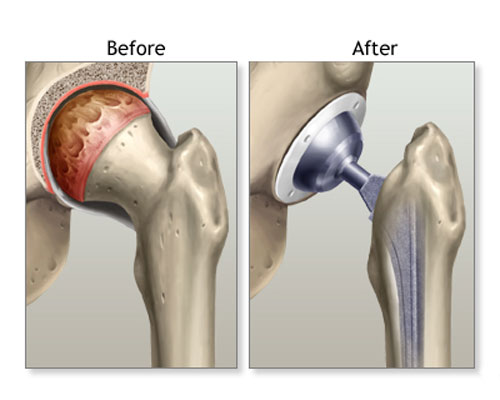Health
The lesser known facts about hip replacement surgery!
Hip replacement surgery can be a life-altering one which has no age limit. Gone are the days when you thought only grandfathers in their eighties and nineties had to undergo a hip arthroplasty. An injury or arthritis that is causing unbearable pain is usually the primary reason for it. Other causes include rheumatoid arthritis, osteoarthritis, and traumatic arthritis which make walking and other movements difficult. Also if you have a history of osteoarthritis and hip pain then a surgery is a possible likelihood.
If you have a lot of trouble standing for long hours with the pain increasing at night causing other allied health problems like insomnia and indigestion checking with a doctor is a good idea. The doctor is likely to discuss the option of an operation when everything else has failed. Painkillers and anti-inflammatory medicines rarely have an effect on the hip pain as you spend sleepless nights tossing and turning. Physical therapy provides only temporary relief from the weakness and stiffness of the hip joint. A walker can help you walk around for some time but things get steadily worse till you find yourself discussing surgery options with your doctor.




 Who is the perfect candidate?
Who is the perfect candidate?
If you have a lot of trouble standing for long hours with the pain increasing at night causing other allied health problems like insomnia and indigestion checking with a doctor is a good idea. The doctor is likely to discuss the option of an operation when everything else has failed. Painkillers and anti-inflammatory medicines rarely have an effect on the hip pain as you spend sleepless nights tossing and turning. Physical therapy provides only temporary relief from the weakness and stiffness of the hip joint. A walker can help you walk around for some time but things get steadily worse till you find yourself discussing surgery options with your doctor.

Getting ready for the surgery
Pre-operative planning is very important for making life easy after the hip surgery is over. It is important to get the house in order so that you don’t have to bend after you return home. Placing all the articles that you will need to use daily on an elevated surface will help. Stocking on the post-operative and other medicines and dry food items in advance is a bright idea. Purchasing the adaptive equipment like crutches and grabber and getting it tested before the operation can reduce stress when you return.
Life is easy but restricted
Going under the doctor’s scalpel is only half the story because you rarely realize that post-operative life will be very different and adjusting to that will take a lot of efforts. Truly, the movement will become a lot easier after a hip surgery but it will get a lot restricted than it used to be. The operation is usually taken one hip replacement at a time and fitted with artificial implants of ceramic and titanium. With the pain was gone and movements made easy there is a feeling of exhilaration but caution is of utmost importance. Minimally invasive techniques of operation make recovery faster and within two to three days you will be made to walk by physiotherapists. However recovery is going to be extremely slow with at five to six months before you can lead a normal life.
Pain killers are best friends and worst enemies
While recuperating painkillers are essential to blot out the pain and trauma caused by the operation. But it wreaks havoc on the system causing nausea, dizziness, constipation, loss of appetite and many more such effects which increase the illness.Getting emotional over a lot of things
Pre-operative discussions prepare you for what to expect from the hip surgery and how long the recovery process will be and what kind of medications you will have to take. But what it does not prepare you for is the emotional turmoil that you will face. Getting a major bone operated upon creates a strange feeling of being weak and helpless which is difficult to explain and tackle. It creates a sense of loss and not being whole in body. According to doctors, it is anesthesia that affects the psychological state, emotions, and cognition and causes you to behave in such a way. The variation in the cognitive functions causes the inability to remember anything and pay attention to any kind of detail. This makes post-operative care and counseling important.Losing your independence
It can be very hard to depend on people for everything. Even if you are able to wear some clothes, eat a meal, take the shower and get down from the bed there are a number of things for which you will still need help. A hip surgery means no bending for anything and that would involve no laundry or cleaning. Driving is a strict no-no and you simply can’t walk for more than five minutes at a stretch. So you need someone to drive you from one place to another.


